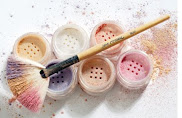 For those of you who may be avoiding a mammogram due to sensitive breasts, there is great news: A new study released today found that the simple application of an over-the-counter anesthetic gel can significantly decrease the discomfort associated with this screening.
For those of you who may be avoiding a mammogram due to sensitive breasts, there is great news: A new study released today found that the simple application of an over-the-counter anesthetic gel can significantly decrease the discomfort associated with this screening.
Interestingly the study also found that OTC oral pain medications - like acetaminophen or ibuprofen - had little to no impact on mammogram-related pain.
The research, published today in the journal Radiology was conducted by doctors at St. Luke's Mountain States Tumor Institute in Boise, Idaho. The study involved 418 women between the ages of 32 and 89 , all of whom reported having sensitive breasts and breast pain in relation to a mammogram. In fact, 54 of the women said they had delayed having a mammogram due to concerns over discomfort.
The women were divided into three groups. The first group received a placebo; the second received acetaminophen or ibuprofen; the third received treatment with a topical, over-the-counter anesthetic gel, which was applied to the breasts and then removed 30 to 65 minutes prior to having a mammogram.
After allowing adequate time for the treatments to take effect, each of the 418 women received a breast screening.
The result: While the oral medications appeared to have no effect on breast discomfort during the screening, the topical pain medication did . Indeed, 88% of the women who used the anesthetic gel reported not only a decrease in pain, but indicated they would definitely get a mammogram the following year; another 10% said they would probably do so.
Moreover, the doctors also reported that the pain gel - which was used first to numb the breasts, and then removed from the skin just prior to the mammogram - did not interfere with the clarity of the screening.
The best news of all: The gel, a lidocaine based preparation - is available over-the-counter - which means you can take control of at least some mammography-related discomfort on your own!
"We designed this study around safe and available over-the-counter products in order to put women more in control, so they may have a more comfortable and satisfactory experience," said Colleen Lambertz, F.N.P., a nurse practitioner at St. Luke's Mountain States Tumor Institute in Boise, Idaho, where the study was conducted.
Making Mammograms Easier: What Else To TryStatistically, doctors will tell you that only about 10% of women report a mammogram as painful. Yet, if you chat with any of your girlfriends you're likely to find the "real " number is a lot higher - with some research showing up to 62% of women complain of significant pain.
While no one is certain what causes the pain, or why some women find it more uncomfortable than others, evidence suggests fibrocystic breast changes may be at least partly to blame.
If this is true, then it's possible that the same factors which increase fibrocystic breast pain - such as too much coffee or chocolate - may also contribute to excess pain during a mammogram. Although there is no definitive research that I know of suggesting that avoiding these foods prior will help, if your breasts do grow more sensitive when you eat certain foods, it may help to avoid them for a few days prior to getting a mammogram.
Moreover, if you're still getting a menstrual period, it's also a good idea not to schedule your screening during a time when you are likely to be ovulating. Fluctuating hormones associated with ovulation can often result in breast sensitivity during this time in the cycle.
Another time to avoid a screening would be in the few days just prior to the onset of your cycle - the "PMS" time frame, if you will, during which many women also report extremely sensitive breasts.
Finally, there are some studies to show that the radiologist may also play a role in how much pain a woman experiences during a mammogram. So, don't be afraid to let your doctor know that you do have sensitive breasts and ask that he or she use as little compression as possible.
Moreover, if any one mammogram is exceptionally painful, let the radiology office know - and ask for a different tech on any return visits. If they won't comply, seek your next mammogram elsewhere.
Finally, be aware that as a woman ages, and hormones dwindle and eventually settle down, breasts do grow less sensitive, so mammograms may get easier to bear, just at the age when you need them the most!
In the meantime, if you want to try the new lidocaine-based gel, be sure to get your doctor's "OK" first. There may be certain health situations in which using the gel may require some specific precautions. For more details on the study, click here; to learn more about the gel used in the study click here.



































































No comments:
Post a Comment